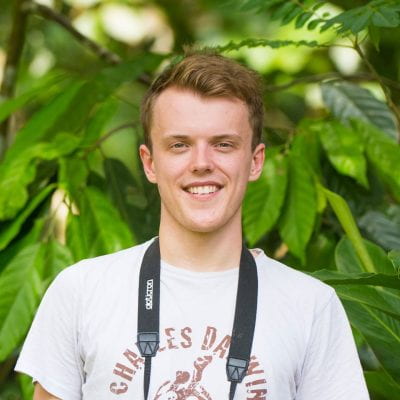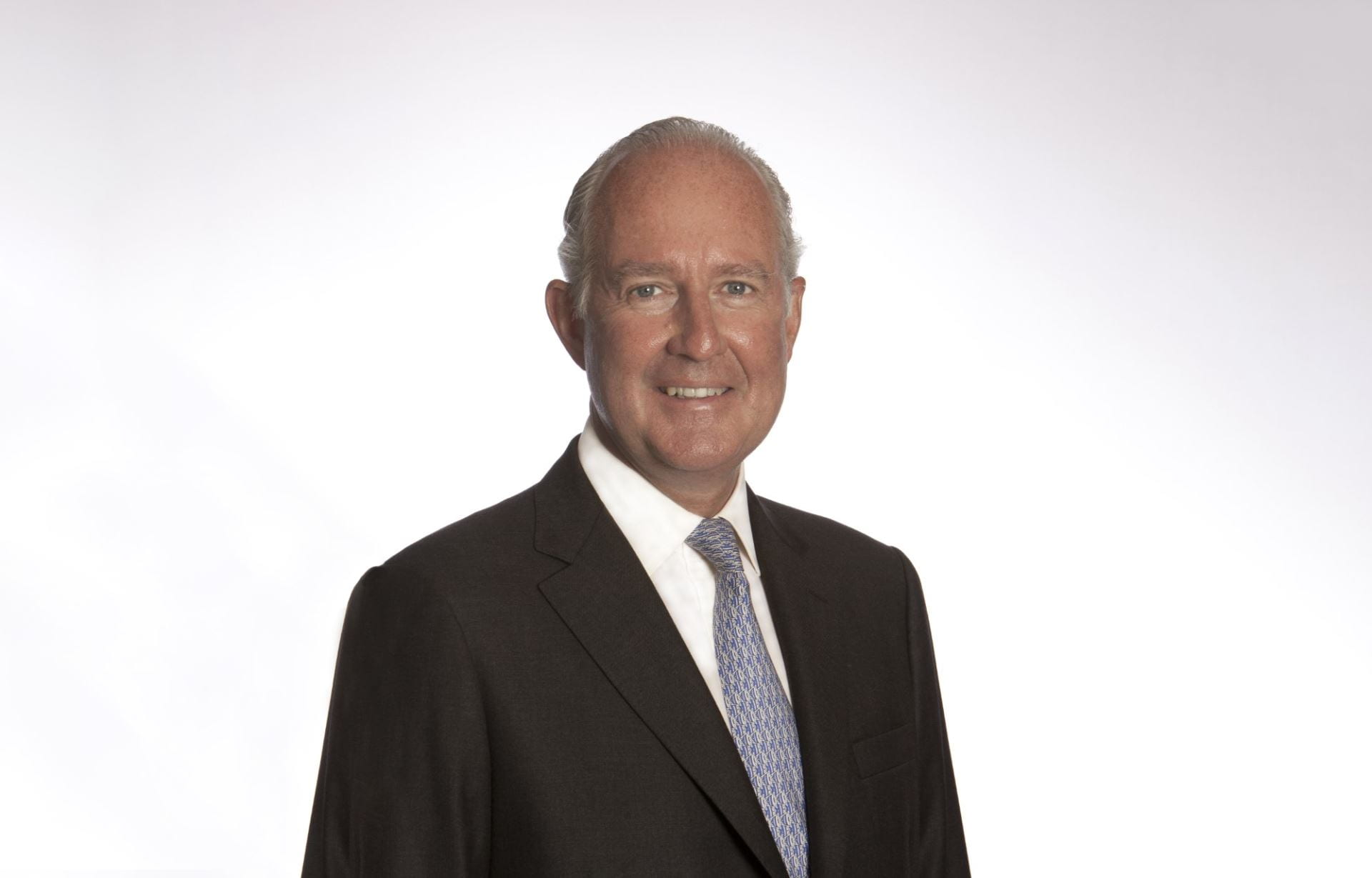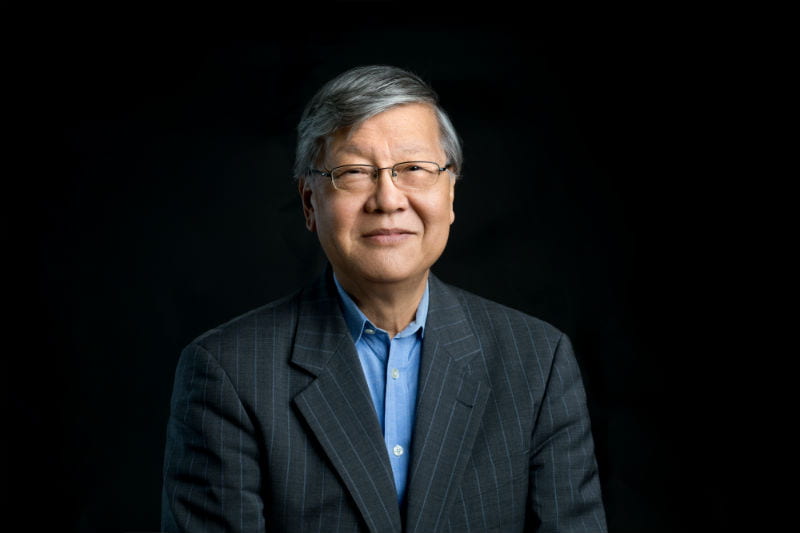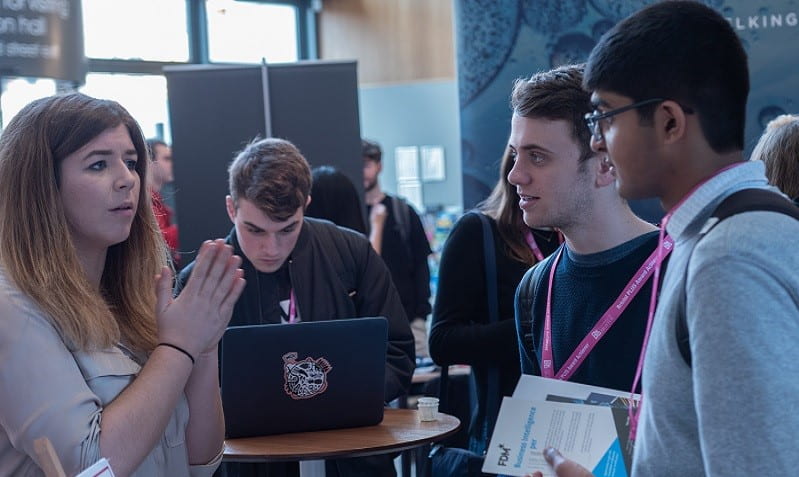Co-founded by Malaysian-born Ai Ching Goh (BSc 2008), Piktochart is a visual communication tool that allows users to create infographics, posters and more – without the need for design experience.
Ai Ching Goh launched the start-up alongside her partner, Andrea Zaggia, a few years after graduating from the University of Bristol with a degree in Experimental Psychology. Since then the business has seen tremendous growth and is now used by more than 20 million people worldwide.
Last month, Ai Ching Goh was recognised for her achievements when she won the entrepreneurial category of the prestigious 2020 British Council Alumni Awards. Here she talks about her time in Bristol and her path to entrepreneurial success.
Congratulations on your recent award! How did it feel to be recognised for your entrepreneurial achievements?
Very unexpected. So grateful! I never thought that my journey as a student at Bristol would have led to this.
You co-founded Piktochart with your partner, how did you come up with the idea for your business?
Ten years ago, it was the golden age of click through rates – meaning adverts at that time received a far higher number of clicks per view than they do now. As time went on it was becoming increasingly apparent that companies would have to ‘pull’ their customers to them through interesting and valuable content. We predicted that this trend was only going to get more visual, which is why we started focusing on infographics. They really help to communicate complex information that otherwise would not be as easily understood. That’s how we got started with Piktochart!
We believe that effective, great communication is essential to every business. Every role (not just the CEO, HR or PR person) needs to be really good at it. It helps the company to represent itself in a very clear way to its customers and stakeholders and expand efficiently by being one single cohesive unit.
You’re passionate about creating a positive working culture at Piktochart. Can you tell us a bit more about why this is so important to you?
The first company I joined after graduating was a big corporate. I arrived bright eyed and bushy tailed – ready to take on the world. I was sure I was going to make a great impact. But instead, I learnt a series of lessons that would forever change my point of view about ‘work’.
I was hired as an Associate Media Manager, managing a $14M portfolio of radio, TV, magazine and newspaper expenditure and often networking with the celebrities of Malaysia. It was a glamorous job, but I encountered difficulties in the workplace. I became quieter and more lacking in confidence until I withdrew into my tortoise shell. I had a lot of ideas, but I worried so much about whether I sounded stupid that I just stopped asking, stopped doing and tried to guess what was wanted from me.
I was so affected that every weekend, come Sunday, I would start crying because on Monday I had to go to work. I was only in my 20s but I was so burnt out and stressed that eventually my physical health took a toll and I was hospitalised. It took me three months of resting to get better. I spent my days with my iPad, reading about life and thinking about what kind of future I wanted for myself. The biggest thing I learned was that I couldn’t work in an environment like that again.
When it comes to the workplace, you’ve got to get the people and culture right. You can build a successful and enduring corporate business, but if the employees are crying on their Sundays, it’s not a business that I want to be part of.

How do you find balance outside of your working life? What do you do to wind down?
I spend time with my daughter and at the moment there’s very little winding down! My daughter, who is almost three, is a ball of energy. Her nicknames are ‘tornado’ and ‘earthquake’. So as you can imagine, I usually feel like I’m working harder over the weekends – but no complaints! She’s been one of the best things that has happened to my husband and myself. We love cooking, going to the parks, exploring and trying new things, reading the bible, singing.
What kind of student were you?
I was outgoing, took on multiple part time roles, I didn’t do very well in my studies during the first and second years but caught up in the final year. I spent a lot of my time in AIESEC, mingling with the Europeans, and checked out a lot of bars when I was there.
Where was your favourite place to spend time in Bristol and why?
Clifton Hill. I had multiple favourite places but I think this one would top it all. It’s such a pretty place to go for a walk, especially because of its quaint little shops. I also loved the farmers’ market, whenever they had one on!
How did studying at the University impact you as a person?
It made me think more critically which came in handy for writing essays etc. Apart from that, it constantly forced me out of my comfort zone. I took on multiple roles in AIESEC, travelled for conferences and built some of my most enduring friendships. I also was part of the Telethon team at the Development and Alumni Relations Office (DARO). I had to survive not being at home for more than three years, but all of it really shaped me to be someone who dared to take chances.
What advice would you give to Bristol students who might be hoping to start their own businesses?
I think that work experience is important. However, if you’ve been entrepreneurial throughout your life, then find a way to quickly validate your ideas and fail fast. The path of an entrepreneur is filled with failures and you would be wise to find ways to “shortcut” it, for example by learning from books, by getting a mentor, by building prototypes and not being afraid to fail.







